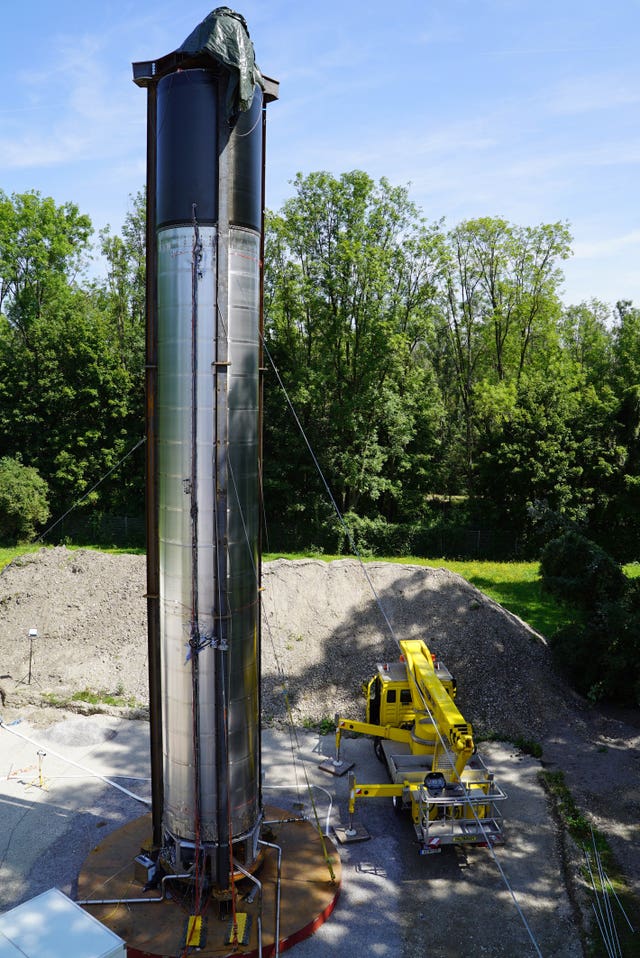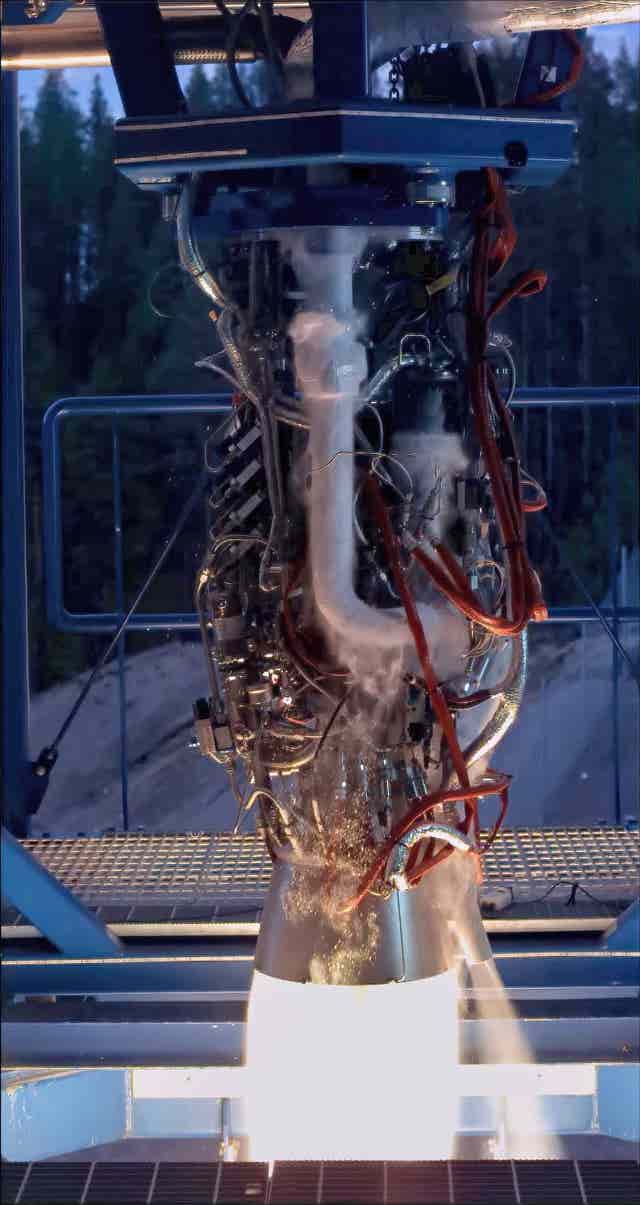
Engineers have identified a “very unusual” oxygen fire in a turbopump as the reason a rocket engine exploded during a test at the spaceport in Shetland earlier this week.
The blast on Monday has delayed a German company’s efforts to carry out the first vertical satellite launch from European soil.
Rocket Factory Augsburg (RFA) said launching in the coming weeks or months was “no longer possible”.
Nobody was hurt during the incident at the privately-owned SaxaVord Spaceport on Unst, the most northerly inhabited island in the UK.
UPDATE on our S1 test anomaly!
Our first stage is gone – but we have collected a significant amount of data and film footage. After reviewing it, we want to share some insights into the technical analysis, preliminary conclusions and our next steps ⬇️ pic.twitter.com/FnGHjTCS2g
— Rocket Factory Augsburg (@rfa_space) August 23, 2024
However the first stage of the RFA One rocket was destroyed in the blast, meaning a replacement will need to be brought from Germany.
In a video posted on social media, a spokesman for the company said they had collected a significant amount of data and footage from the blast.
The video shows a plume of fire extending horizontally from the base of the rocket, indicating a problem with one of the engines.
He said: “We actually ignited eight motors, unfortunately one of these motors has developed an anomaly.
“We know now from the debris analysis that we have conducted that this anomaly was a very unusual one.
“It was most likely a fire in the oxygen pump.
“That’s really difficult to contain, that spread on to neighbouring engines.”

An emergency stop and fire suppression systems were simply not enough to contain the fire, he said, and the remaining fuel and liquid oxygen on board the vehicle ignited.
The spokesman said: “Unfortunately this has happened in that very important stage test and unfortunately this has taken out the entire stage.
“This comes at a really critical time, we wanted to launch within the next few weeks and months and this is unfortunately no longer possible.”
He said that no “major” parts of the launch site infrastructure were damaged in the explosion, and RFA are confident their engine design is “very sound”.
A SaxaVord spokesman said earlier: “This was a test and test campaigns are designed to identify issues prior to the next stage.
“We will work with RFA to understand and learn from the causes and support them as they move forward to the next phase of their preparations.”

RFA is not the only company that hopes to achieve an orbital satellite launch from the UK, though its plans are thought to be the most advanced.
Another German company, HyImpulse, also has plans to launch from SaxaVord, as well as the US-based ABL Space Systems.
A company called Orbex hopes to launch from a different spaceport in Sutherland.
Professor Malcolm Macdonald of Strathclyde University, an expert in space technology, has told the PA news agency that failures on new designs of rockets are not uncommon.
He said: “Obviously things like this get quite high profile and get a lot of interest, but I think most people within the space sector would be expecting setbacks.
“We build the capability over a number of years, and launch is just a small part of the overall space sector.”


Comments: Our rules
We want our comments to be a lively and valuable part of our community - a place where readers can debate and engage with the most important local issues. The ability to comment on our stories is a privilege, not a right, however, and that privilege may be withdrawn if it is abused or misused.
Please report any comments that break our rules.
Read the rules hereLast Updated:
Report this comment Cancel